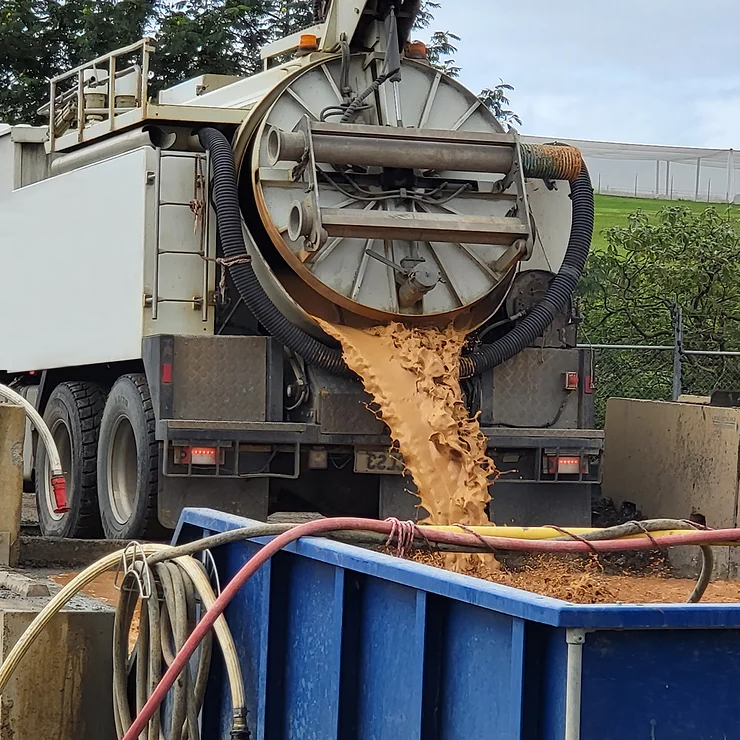Load Disposal And Its Importance
You can't just dump anywhere.
Posted 03:37 October 07, 2024
Last Updated 03:37 October 07, 2024

Load disposal is an essential component of hydro excavation that requires careful consideration, particularly in the context of local, state, and federal regulations. In hydro excavation, water is used to break up soil, which is then vacuumed into a debris tank and transported for disposal. Proper load disposal ensures that the removed materials, which can include soil, sludge, and potentially hazardous substances, are managed in a manner that protects the environment and adheres to regulatory guidelines. In Clark County, Nevada, as well as throughout the state and at the federal level, these regulations aim to minimize the environmental impact, prevent contamination, and ensure the safety of workers and the public.
At the local level, Clark County has specific requirements for load disposal that align with environmental protection standards. The disposal of excavated materials is governed by county regulations that mandate where and how such waste can be deposited. For example, Clark County has strict rules on dumping soil, debris, and potentially contaminated waste in landfills or designated disposal sites. These sites are engineered to prevent leaching of contaminants into the ground and nearby water sources. Failure to dispose of hydro-excavation loads properly in Clark County could lead to groundwater contamination and harm to local ecosystems. Furthermore, improper disposal could result in heavy fines, permit revocations, and increased scrutiny on companies operating within the area, impacting their ability to continue working on excavation projects.
The state of Nevada also has laws concerning the disposal of hydro-excavation loads, often falling under waste management and water protection statutes. The Nevada Department of Environmental Protection (NDEP) plays a significant role in monitoring and enforcing disposal regulations. NDEP’s guidelines ensure that disposal activities protect Nevada’s fragile desert environment, where water is a scarce resource, and the potential for contamination carries high risks. Hydro-excavation often involves the extraction of soil that may contain naturally occurring contaminants or substances introduced by human activity, such as oils or chemicals. The state mandates proper treatment of this waste to prevent environmental hazards, including soil erosion, land degradation, and pollution of Nevada’s limited water supplies. Companies must adhere to these rules to avoid state-level penalties and maintain compliance with Nevada’s environmental goals.
At the federal level, load disposal in hydro excavation is regulated under laws like the Resource Conservation and Recovery Act (RCRA) and the Clean Water Act (CWA). These laws mandate how waste should be handled and disposed of to protect the environment and public health. RCRA, for instance, oversees the disposal of hazardous and non-hazardous waste, emphasizing the safe disposal of contaminated loads that may result from hydro-excavation activities. Under the CWA, there are stringent controls on how waste disposal can impact water quality. For example, hydro-excavation waste containing pollutants cannot be disposed of in a way that would contaminate nearby rivers, lakes, or groundwater. Federal regulations ensure that waste generated from hydro excavation is managed with consideration for its potential impact on natural water bodies, aligning with broader goals of maintaining clean, safe water across the United States.
In summary, the importance of load disposal in hydro excavation lies in its environmental and legal implications. Clark County enforces local rules to protect its groundwater and ecosystems, while Nevada imposes statewide guidelines to safeguard its unique environment and limited water resources. Federally, regulations like the RCRA and CWA set standards for safe disposal practices, helping prevent pollution and protect public health. Companies engaged in hydro excavation must navigate this regulatory landscape, ensuring that load disposal practices meet all local, state, and federal requirements. By following these regulations, hydro-excavation companies contribute to environmental protection and avoid significant legal and financial risks associated with non-compliance.
If you'd like to discuss and upcoming excavation project, contact the excavation experts here at Hole Hogz. We service Las Vegas, Boulder City, Henderson, and most parts of Clark County Nevada.
